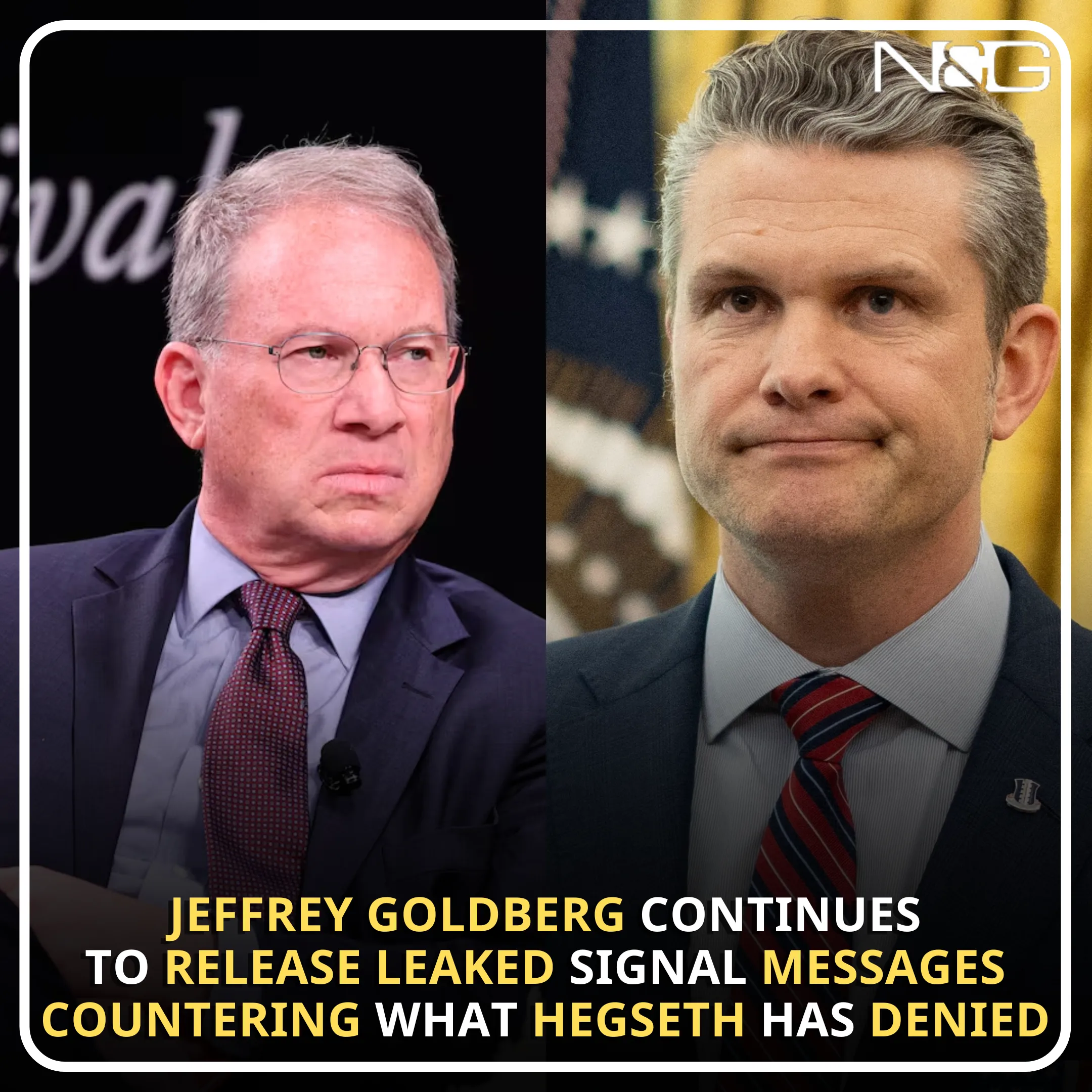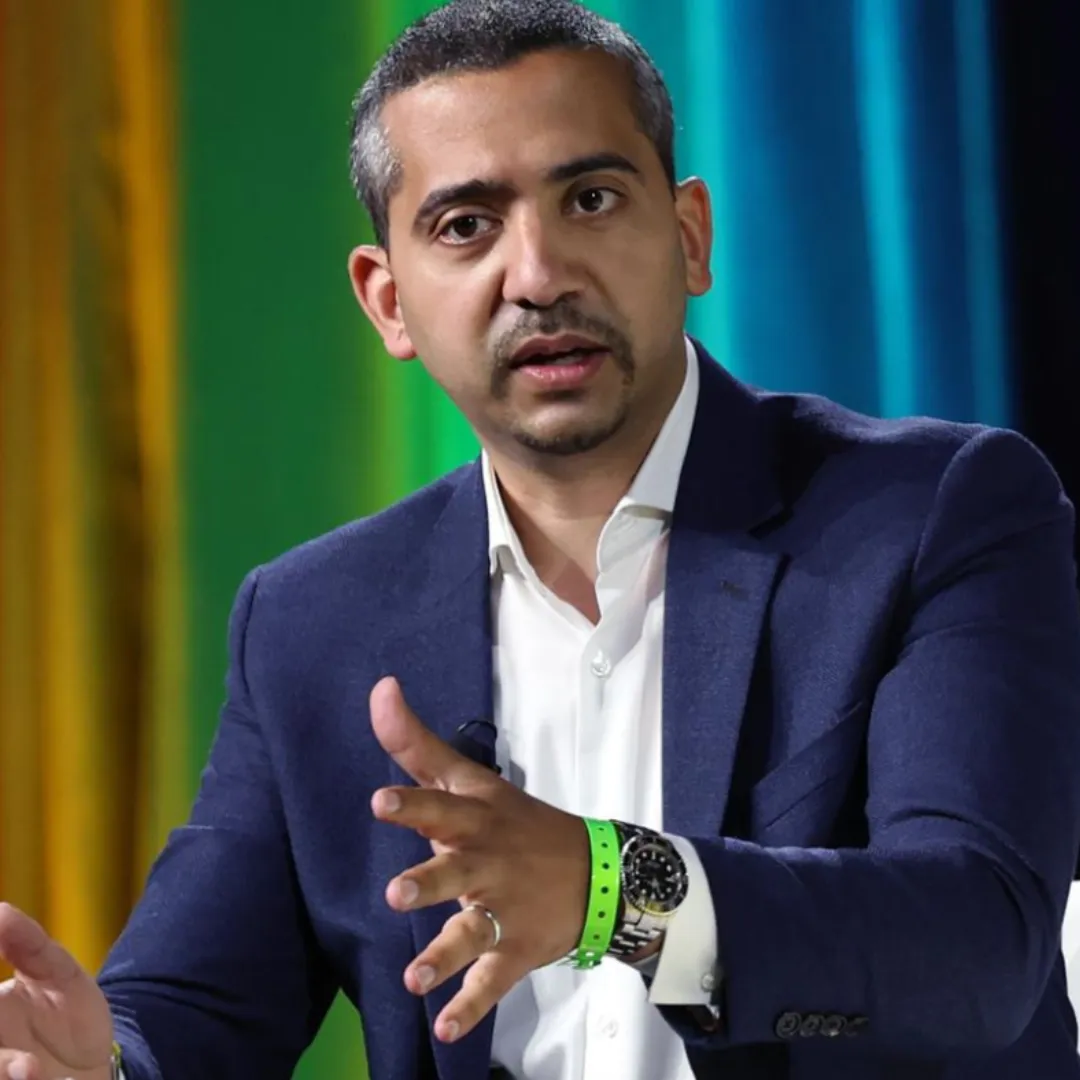
The White House is facing growing pushback from Republican members in the House of Representatives over the ongoing “Signalgate” scandal, which threatens to expose serious security breaches within the Trump administration.
As President Donald Trump’s team scrambles to downplay the controversy, some GOP members, including key national security figures, are publicly breaking with the White House’s stance on the leaked Signal chat discussing a planned U.S. military strike on Houthi forces.
The scandal began when The Atlantic published a report revealing that Jeffrey Goldberg, the editor-in-chief of the magazine, had been mistakenly added to a secure Signal chat between high-ranking Trump officials.
The chat contained discussions about a planned military strike, including sensitive details about the timing of the attack, weapons involved, and information about a CIA source. Despite Signal being an encrypted app, the nature of the information shared was considered highly classified by many within the national security community.
As the story continues to unfold, the White House is under pressure to address the ramifications of the leak. Trump’s administration has been struggling to move past the scandal, with officials like Defense Secretary Pete Hegseth and Press Secretary Karoline Leavitt claiming that the information shared in the chat was not classified, or at least did not need to be classified.
However, this narrative has been met with skepticism from some members of the Republican Party, particularly those with expertise in national security.
One of the most significant breakaways from the White House’s defense came from Congressman Mike Turner, the former chair of the House Intelligence Committee. Turner, who has regular access to classified briefings and information, was unequivocal in his condemnation of how the situation was being handled.
Speaking on ABC’s This Week on Sunday, Turner stated: “Clearly, the subject matter that’s being discussed, the status of ongoing military operations, should be … considered classified information.”
Turner expressed his surprise at finding such sensitive information in an unclassified chat, emphasizing that discussions about military operations — particularly those involving classified sources or attack plans — should be handled with far greater caution.
“It’s surprising to find it in an unclassified manner,” Turner added. “To find it in this way is surprising.” Turner’s comments highlight the gravity of the situation and the concerns that many within his party have about the handling of sensitive national security matters.
In addition to Turner, Representative Victoria Spartz from Indiana, who has extensive experience on the Helsinki Commission, also broke ranks with the White House. Spartz, who faced an intense town hall in her district over the weekend, was called on by her constituents to demand the resignation of Hegseth and National Security Adviser Michael Waltz, who had set up the ill-fated Signal chat.
While Spartz declined to call for their resignations, she acknowledged the severity of the situation, telling her constituents that the information shared in the chat “was or should have been classified.”

The resistance from House Republicans is not just coming from within the halls of Congress but is also being felt on the ground. In State College, Pennsylvania, residents of a red district represented by Congressman Glenn Thompson voiced their frustration at a town hall meeting hosted by local Democrats.
Thompson, who did not attend the event, was represented by a cardboard cutout instead, symbolizing the growing frustration among voters with their elected representatives.
Ray Bilger, a Democrat and former veteran of the State Department foreign service, spoke at the meeting, expressing his concern about the security breach. “Number one, everything they said there was classified,” Bilger said.
“Number two, they violated national security by putting this in an unapproved and unsecure application.” Bilger’s comments reflect a broader sentiment among voters that the breach was not just a minor mistake but a serious violation of national security protocols.
The fact that this issue has resonated so deeply with voters, even in traditionally Republican districts, underscores the potential political consequences for the GOP in the 2026 midterm elections. The Signalgate scandal has exposed a rift within the Republican Party, with many members now questioning the handling of sensitive security information by their own leadership.
As the White House struggles to regain control of the narrative, the legal and political fallout from the Signalgate scandal continues to grow. The White House’s attempts to downplay the situation have been met with resistance from both within the party and the broader public.
While Trump’s administration maintains that no laws were broken, the revelations surrounding the leaked Signal chat have raised questions about the proper handling of classified information within the White House.
Some members of Congress, particularly those with national security backgrounds, are calling for a more thorough investigation into the matter, while others are pushing for accountability from the individuals involved in the leak. Given the sensitive nature of the information that was shared, the potential consequences for those involved could be significant, both politically and legally.
In the wake of the controversy, the Trump administration has attempted to downplay the leak, with Trump himself largely remaining silent on the matter. However, the growing pushback from within his own party makes it clear that this issue is far from over.
The Signalgate scandal could continue to haunt Trump and his allies as they head into the 2026 midterms and beyond.
The Signalgate scandal has brought into sharp focus the deep divisions within the Republican Party. While some GOP members have remained loyal to Trump, others are openly questioning the way in which sensitive national security information has been handled under his leadership.
As the controversy continues to unfold, it remains to be seen whether Trump will be able to repair the damage caused by the leak or if the issue will continue to erode his support within his own party.
For Trump, the Signalgate scandal represents yet another challenge to his legacy as he looks ahead to the 2024 presidential election. While the administration has tried to downplay the scandal, it is clear that the issue has exposed deep fractures within the Republican Party and raised serious questions about the handling of classified information.
Whether or not Trump can successfully navigate this political minefield will likely have significant implications for the GOP in the years to come.




